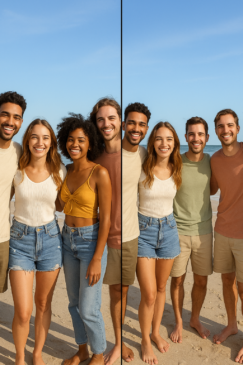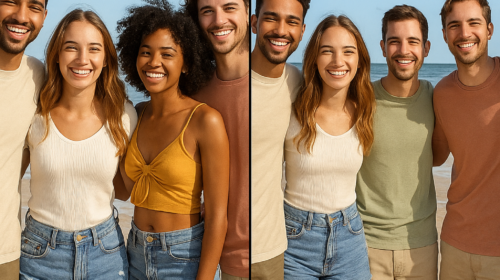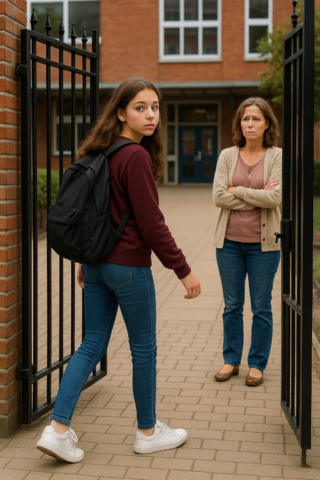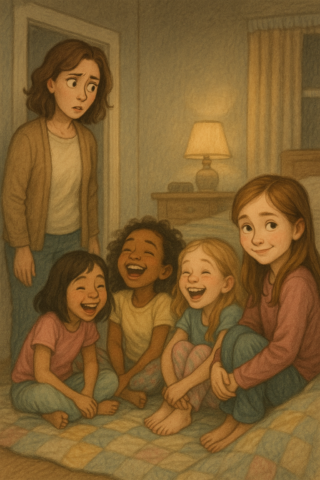There’s an unspoken magic in old photos—a power to transport you back, not just to a moment, but to the people you once called friends, the inside jokes, the adventures you thought would never end. That’s why, when I saw my old college roommate, Leah, post a throwback photo from our junior year spring break, I felt a jolt of nostalgia—and then a sting of surprise.
Because there we all were—laughing on the beach, drinks in hand, sunburned and alive. All of us, except me.
I remembered that afternoon perfectly. I had taken the picture, set the timer, and dashed to squeeze into the group at the last second. I remembered the sand between my toes, the wind whipping my hair, and Leah’s arm around my shoulder. But in the version she posted, I’d been neatly cropped out. My presence erased with the swipe of a finger.

The Shock of Being Edited Out
At first, I told myself it was probably just a mistake. Maybe she was trying to make the shot square for Instagram, or maybe the composition looked better that way. But as the likes and comments rolled in—“Best trip ever!” “Wish we could go back!”—the old familiar ache of exclusion crept in.
A few friends even tagged me beneath the post: “Where’s Emily?” “Wasn’t this your photo?” Leah replied vaguely: “Oh, I had to crop it—Instagram sizing, you know!”
But I knew. And the more I looked at the photo, the more I realized how it hurt to see my memories rewritten—my role in that perfect moment quietly erased.
Navigating Hurt in the Age of Social Media
I debated saying nothing, brushing it off as a digital accident. But the truth was, this wasn’t the first time Leah had left me on the margins—forgotten to tag me, left me off the invite list, chosen other friends for her main feed. It seemed so small, but it added up: a pattern of little exclusions that made me question my place in her life.
So I texted her, keeping it light but honest:
“Hey, saw your spring break throwback—made me smile, but also, ouch, I was in that one! Any reason you cropped me out?”
Her response came quickly:
“Oh Em, I’m so sorry! I honestly just wanted the photo to fit better, but I didn’t mean to hurt your feelings. I should have checked with you.”
We ended up talking—about the photo, about how easy it is to accidentally hurt people online, and about how I sometimes felt like a footnote in her social life. She admitted she hadn’t noticed but promised to do better. Later, she posted another throwback—this time with all of us, tagging everyone, including me.
What I Learned
Social media is filled with curated moments, but the real stories—the messy, inclusive, unforgettable ones—are worth sharing, too. I learned that it’s okay to ask for visibility, to speak up when you feel left out, and to expect the people you care about to honor your presence in both real life and memory.
Leah and I are still friends, but I’m more careful with my heart—and more willing to claim my place in the picture.
Final Thought
If you ever find yourself cropped out of a memory, don’t let it erase your worth. Speak up, claim your story, and surround yourself with people who make room for you—both in the frame and in their lives.


